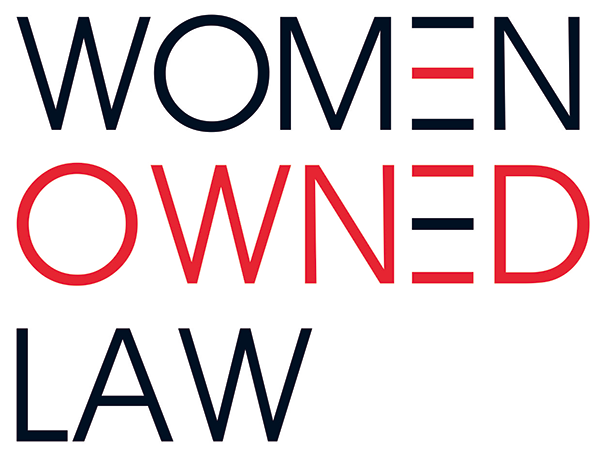Top Tips from Intellectual Property Attorneys That You Can Apply to Your Practice
This is the third in an occasional series of TOP TIPS from attorneys with specific practice areas. Their pearls of wisdom extend past a single practice and appear relevant to your practice as well. Follow these insightful reminders to strengthen your relationships with clients and manage interactions with opposing counsel and judges.
Let’s hear from 12 attorneys with an intellectual property practice, building on the December article with advice from lawyers with an employment practice. Consider their guidance for a hypothetical new associate who has joined their firm after three years in a different field of law.
To begin, the associate should “Join several of the IP bar associations (e.g., American Bar Association IP Law Section or the American IP Law Association (AIPLA)), plus some committees and also attend webinars and other events,” said Nicole Galli, at ND Galli Law in Philadelphia and New York.
Heather Nolan added, “The new associate ‘should plan to attend a law conference with educational elements (like INTA for trademark work) and plan to spend time on their own to learn the substance of what they’ll be doing. This learning may not be eligible for billable credit.” Nolan practices at InfoLawGroup in Chicago.
Communication
“Clear, concise, and courteous communication is paramount,” according to Celia Leber at Leber IP Law in Woburn, MA. Quite a few contributors agreed.
Wendy Miller counseled, “Take the extra time to make sure your communications are well written. Otherwise, your reader will either misunderstand you or ignore you, and possibly form an unwanted judgment about you or your client." Miller is at Wissing Miller in New York.
“Put yourself in the shoes of who you’re talking to (judge, client, opposing counsel, third party). What do they need to hear from you in order to want to do the thing that you need them to do?,” asked Karen Boyd, at Turner Boyd in San Mateo, CA. As an example, she suggested writing an email to a client at Apple “The subject line of an email should be Patent Troll X case – question about witness, not Apple case – question about witness, because the client sees every case as an Apple case.”
Make it easier to read communications when you “use visual cues to break up the content,” said Nolan. [Note: This suggestion was applied to this article.]
Client Relationships
Educate yourself about the client and keep as close to them as you can, offered Shereen El Domeiri. “Because you will likely be focused on their branding and products, an understanding of the business and their values is key to help them protect their brand and other IP. Ask to be included in calls and meetings with clients and on meetings about the client’s matter. Do not hesitate to ask questions to learn more about the issues and about the various parties on the client side that you may interact with when handling their matters. Clients appreciate counsel who really understands the business and incorporates the same value.” Domeiri Law is located in Dallas.
The more you know about the client’s business, the better equipped you are to advise them on risk. “To be a trusted brand advisor, you need to understand what risks they can afford to take, what risks they want to take, and how their internal structures might lead to risk,” stated Kyle-Beth Hilfer, of Hilfer Law in Chappaqua, NY.
For Sara Chubb, of InfoLawGroup in Chicago, “The biggest value you can offer your client is making their job easier. This can be saving them time, providing them with work product in a form that can be shared directly with their client, or providing concise information on a legal issue so they can educate and make recommendations to their executives. “
Responding to client inquiries is a large part of every law practice. “Every client wants to feel like they are your only client, and responsiveness is essential,” observed Nancy Mertzel, of Mertzel Law in New York. She added, “If your practice is to stay out of email and check it only a few times per day, let clients know they can call or text you if something is urgent.”
It’s not only clients who await prompt responses, pointed out Nolan; your partners also need to hear from you on a timely basis. “As soon as you read an email request, right away send an acknowledgement email that includes any preliminary questions (for example, if any threshold substantive questions need clarification; you wish to set or ask about timing expectations, etc.). This will help the client/partner know you are on it and the questions will help move the request forward, even if you cannot get started on the work at that moment.”
Opposing Counsel
These contributors offered several insights into dealing with opposing counsel, noting that both you and clients will likely deal with them again. For example, “In transactional matters, consider how opposing counsel’s requests will affect the client within the contractual relationship and beyond in their future business dealings,” noted Hilfer.
“Although transactional communications are less combative than in litigation, you still have to be focused on advocating for your client and carefully reviewing each draft of the transaction documents. Some transaction counsel try to pull sneaky tricks, so you have to be on your game,” advised El Domeiri.
Hilfer pointed out that litigation will end, but relationships between the client and its counterparty may continue. “After the resolution of many IP disputes, the parties may still work together. Counsel should work to preserve relationships by being courteous and cordial. Try to engage opposing counsel as a fellow problem-solver, rather than as an enemy.”
Here's what Anna Brook proposed: “Take copious notes of interactions with opposing counsel, so you have a record of any disputes and agreements reached. In addition, be professional in your communications; you never know which one will be attached to a letter or motion to the judge.” Brook practices at Culhane Meadows in New York.
As Mertzel noted, “The IP bar is fairly small, so always be courteous. You don’t know who the opposing counsel is friendly with or when you will come up against them again.”
Galli pointed out a positive aspect of a small bar: “Develop connections with other IP colleagues, to have experts to call and/or other people to bounce ideas off of. It’s a very collaborative bar and we all help each other regularly, as we wrestle with new and difficult issues.”
Judges
What about dealing with judges? As an arbitrator, Hilfer functions similarly to a judge. She recommended that “Counsel educates the judge or arbitrator about the client’s business, as well as legal problems. Why is the client in this litigation? Why does its resolution matter to the brand as a whole? How will the outcome affect the value of your client’s IP and reputation?”
For Mertzel, the evolving nature of the practice may pose an issue. “Some judges may not be familiar with the nuances of IP law. It’s our job to respectfully educate them and then show why your position is correct.”
Hilfer also counseled “It goes without saying to prepare well and behave professionally. Many IP cases are about the injunctive relief as much as, if not more than, the damages. It can be tempting to raise the volume when presenting arguments about irreparable harm. The most convincing advocates convey their points without sacrificing demeanor. If using an expert to testify about injunctive relief, damages or consumer perception surveys, attorneys should pre-emptively address the other side’s potential objections to their side’s expert testimony.”
Another way to prepare to meet the judge you will be facing is to read about them, said Brook. “Learn your judge’s individual rules, both from their website and from local counsel (if you have local counsel).
Boyd added, “Docket Navigator is a fantastic resource for patent and trademark cases. Search for cases by court, judge, party, patent, law firm, legal issue, procedural status—all manner of things. When preparing to file a motion, use Docket Navigator to pull decisions (including every unpublished decision) by a judge on that sort of motion.”
Summary
As an additional guideline, Leber pointed out “Before diving into a project, make sure you understand what the client is trying to achieve. If what they say they are trying to achieve seems either impossible to accomplish or short-sighted then point that out. Don’t charge ahead with an approach that lawyers think is great, but that doesn’t actually serve the client’s needs from a business standpoint.”
Lynda Calderone summarized these points well: “Intellectual property law is always changing to keep pace with the government’s current approach, the marketplace and technology. The keys to success in practicing intellectual property law are in maintaining an active knowledge of the law, learning how to educate your client in the proper use and commercial exploitation of intellectual property, and learning how to create and procure rights for your client that will maximize the value of the property to the client over the property’s useful life.” Calderone is at Calderone Bullock in Marlton, NJ.
In closing, whether dealing with clients or opposing counsel, Jordan Arnot Leahey at Culhane Meadows in Chicago, imagined the scene in a meeting. “When helping clients with their IP needs, you often find yourself in a room full of experts – e.g. the most creative people in the business (Chief Marketing Officer and its team regarding trademarks/branding or copyrights in creative content) and the smartest people (the inventors behind patents). Never lose sight of the fact that you, too, are an expert and these individuals are relying on you for your knowledge regarding the legal issues and risk.”
With clear communication, responsiveness, giving email correspondents direction about next steps, coping with opposing counsel among a collaboratively oriented bar and preparing to meet judges, this aggregation of insightful advice applies to attorneys at all levels of experience. Indeed, whether your practice is litigation or transactional, this guidance may well contribute and add to your success in your relationships with clients, opposing counsel and judges.
Janet Falk is a Public Relations and Marketing Communications professional at Falk Communications and Research. She offers members of WOL a review of their Public Relations and Marketing activities in a Complimentary 30-minute consultation. She guarantees TWO Ideas.

